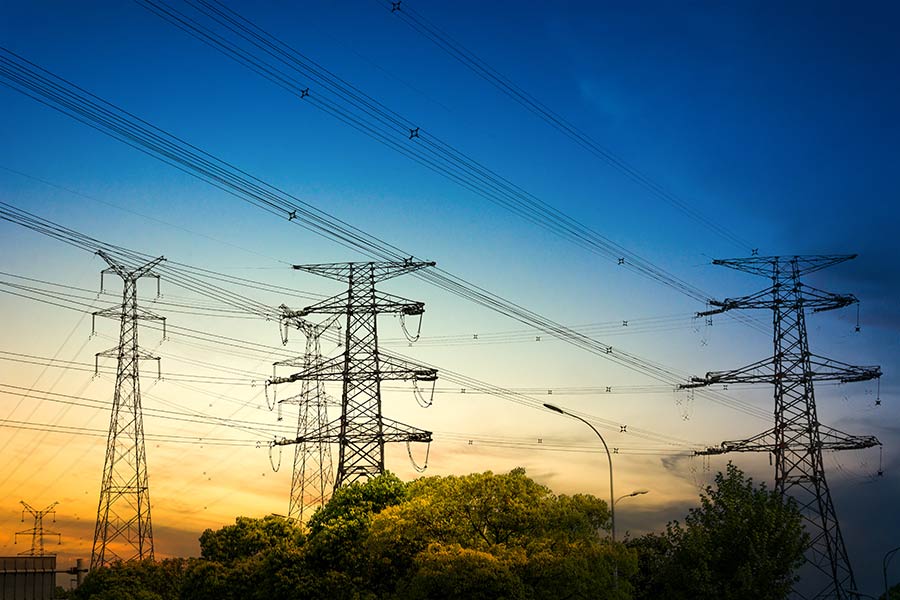
Published :
Updated :

Electricity load shedding intensified across the country on Saturday due to a sudden fall in gas supplies to the power plants as regasified LNG from the offshore FSRUs kept suspended from Friday night amid fears of cyclone Mocha.
The country's two operational floating, storage and re-gasification units (FSRUs) have been kept shut from re-gasification of liquefied natural gas (LNG) from Friday night, said a senior Petrobangla official.
The FSRUs were disconnected from Moheshkhali moorings at 11 am on Saturday and taken to the deep sea to avoid any damage to the floating terminals due to the cyclone, he said.
Natural gas supply to industries, commercial entities, households and compressed natural gas (CNG) filling stations also squeezed badly as a consequence, market insiders said.
The power generation dropped to around 10,000MW on Saturday from around 13,000MW on the day before (Friday), official data shows.
The country's overall natural gas supply dropped to around 2,150 million cubic feet per day from around 2,900 mmcfd due to the suspension of LNG re-gasification.
The government has decided to suspend gas supply from the floating LNG terminals in Moheshkhali from 11 pm on Friday due to Cyclone Mocha which is feared to landfall today (Sunday), according to a statement issued by the Ministry of Power, Energy and Mineral Resources.
The gas-fired power plants in Chattogram, Meghnaghat, Haripur, and Siddhirganj areas may remain closed or operate partially as a consequence, it noted.
Gas supply faced disruptions in Chattogram and Cumilla regions on Saturday, it said, adding that the resumption of gas supplies will depend on the storm condition.
People across the country are bearing the brunt of acute load shedding since Friday with the non-operation of the FSRUs and fall in natural gas supplies, said sources.
Businesses and commercial operations are also being disrupted badly due to the frequent outages of electricity in major parts of the country, they added.
State-run electricity marketing and distribution companies are enforcing electricity load-shedding several times in many city areas.
"We are facing electricity outages once every two hours," said Mirpur resident Faruq Hasan.
The electricity supply was disrupted for three times in four hours on Saturday afternoon, said a resident of Dhanmondi area.
Almost all areas in the capital including Adabor, Shaymoli, Shewrapara, Kalshi, Uttara, Khilgaon, Bashabo, Jatrabari, Demra, Jurain and Lalbag were worst affected, sources alleged.
All the 50 CNG filling stations in Chattogram remained shut since Friday night, immediately after the suspension of operations of the FSRUs, general secretary of Bangladesh CNG Filling Station and Conversion Workshop Owners Association Farhan Noor told the FE on Saturday.
The CNG filling stations in other areas are getting gas at less-than-expected pressure, increasing the operation costs, he said.
"Natural gas pressure requirement in CNG filling stations is around 15 per square inch (psi), but before Friday night we got only 5-7 psi," he said, adding that the gas pressure now has been dropped further to only 1-2 psi.
The country's overall electricity generation has come down well below the requirement as some power plants remained idle as those cannot afford to remain in generation by importing expensive fossil fuel like coal and furnace oil from the international market, said a senior official of state-run Bangladesh Power Development Board (BPDB).
The Maitre 617 MW coal-fired power plant remained shut due to the coal crisis while the country's largest 1244 MW capacity Payra coal-fired power plant is feared to go for a shutdown after a couple of weeks as its coal stock would be exhausted by then.
Bangladesh China Power Company Ltd (BCPCL), the owner of the Payra power plant, could not import sufficient quantities of coal to continue its operation due to a dearth of US dollars, said its managing director AM Khurshedul Alam.
A coal purchase bill of around US$290 million remained outstanding, he added.
Some furnace oil-fired power plants had to squeeze their operations due to fuel scarcity and non-payment of dues by the government, said president of Bangladesh Independent Power Producers Association (BIPPA) Faisal Khan.
azizjst@yahoo.com


 For all latest news, follow The Financial Express Google News channel.
For all latest news, follow The Financial Express Google News channel.